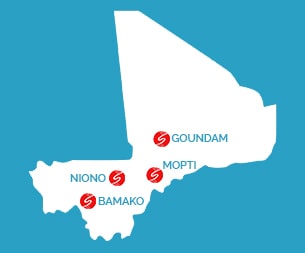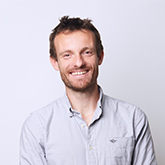
Context
More than six months of economic sanctions have seriously affected the livelihoods of the country’s population. The Centre and North regions are the worst hit.
The security situation has severely deteriorated, resulting in population displacements, livestock theft, limited access to certain agricultural sites and the destruction of crops in certain areas. High food prices, combined with the country’s already fragile economic structure, have made access to essential goods even more difficult.
- 21.9 million inhabitants
- 186th out of 191 countries on the Human Development Index
Our action

-
Mission
opened in 2012 -
Team
24 international staff
165 national staff - Budget 5.62M€
SOLIDARITÉS INTERNATIONAL continued to provide emergency humanitarian assistance for populations displaced by the security crisis in the Ségou and Tomboctou regions, using the rapid response mechanism.
Our NGO also extended its humanitarian activities to other areas of the country, by setting up operations in the Mopti region. We opened a base there to help improve access to water for local populations.
Despite increasingly restricted humanitarian access, our teams also took steps to improve access to essential goods and services and implemented innovative, structural projects to help affected populations recover their livelihoods.
Institutional and private funding partners ECHO, BHA, European Union, WFP, UNICEF
Operating partners ACTED
Our impact

Emergency multi-sectoral response
- Cash transfers to purchase food
- Distribution of essential non-food items
- Rehabilitation of water supply systems

Access to essential goods and services, livelihood recovery
- Food aid during the lean season
- Support for income generating activities (IGA), agriculture and livestock rearing
- Raising awareness on good practices (food and hygiene)

Improving the resilience of individuals, communities and institutions
- Capacity-building for local organizations to manage water, sanitation and hygiene (WASH) services
- Support for local development plans
Should you have any questions, please contact Xavier Lauth

Vacancies
At head office
Worldwide
Internships
